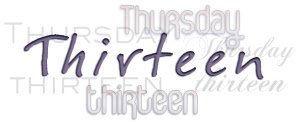1. Pick up your mail every day and put a hold on your mail if you're going to be gone longer than overnight. Low-tech identity theft is making a comeback.
2. Drop your letters off at the post office, or put them in your mail carrier's hand yourself. We assume there are cameras everywhere, but there aren't, and there's been an uptick in theft from corner mailboxes.
3. Use a Sharpie or a gel pen when you write checks. "Check washing" is making a comeback, too. That's when one of the bad guys intercepts a check you mailed and uses chemicals to remove/replace the payee and dollar amount. Since your signature is legitimate, your bank will cash the altered check. To avoid this, don't use ballpoint pens to write checks. Instead, reach for a pen where the ink "bleeds" a bit into the paper, making it more resistant to those chemicals.
4. Look at what's in your wallet. Leave your Social Security Card at home. Don't carry credit cards you're not likely to use that day. You'll be less vulnerable to identity theft if your wallet is lifted.
5. Change your passwords. Yeah, it's a drag. But like picking up your mail, sometimes the little things can go a long way to keeping you safer.
6. Shred your documents. Not just bank statements. Utility statements and credit card applications can be used to steal your identity.
7. Read your bank/credit card statements. It's common for the bad guys to hijack your account information and then make small transactions, to see if they can get away with it, before emptying you out.
8. Remember that medical records leave you vulnerable, too. There's another kind of identity theft on the rise: medical identity theft. Scammers use someone else's insurance information to get care. So read any insurance EOBs you receive closely and carefully, too. Contact your insurance company immediately if you see something amiss.
9. Use alerts. Many financial institutions will send you an email or text when funds are transferred to/from your account. Take advantage of this!
10. Freeze your credit. Contact the three credit bureaus -- Experian, Equifax, and TransUnion -- and ask them to freeze your credit. That way, only you can open a new personal loan, credit card, etc. Freezing your credit is free and won't affect your credit rating.
11. Check your credit report. Those same three credit bureaus -- Experian, Equifax, and TransUnion -- can provide you with a free annual report. Similarly, keep an eye on your credit score. That way you can tell if a new account has been opened or if spending goes way up on one of your existing accounts.
12. Use public wifi carefully. Do your banking from home.
13. Think twice before paying with a debit card. If someone else uses your credit card, the most you can be liable for is $50. This is federally mandated. The law doesn't extend to debit cards. Either call and confirm with your individual bank what their policy is covering debit cards, or take the safer route and use your credit card.
Please join us for THURSDAY THIRTEEN. Click here to play along, and to see other interesting compilations of 13 things.





